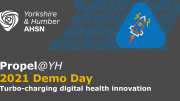With less than a month to go until the general election, we spoke to health tech leaders from across the industry to get their views on what the next government needs to focus on:
Steve Sawyer, Managing Director, Access HSC said:
“Both Labour and the Conservatives have acknowledged the critical role of technology in health (however less so in social care). And the NHS is already seeing benefits from the adoption of digital, such as the NHS App and the Frontline Digitisation programme, so now is the time to scale – quickly and effectively.
ICSs need to be supercharged to deliver this – to move beyond the theoretical strategy phase to commissioning solutions using an outcomes-based model and using budgets to connect the existing digital and data ‘dots’. This will help break down the friction between services and care settings that often prevent providers from achieving the full value of the technology.
Solutions such as remote monitoring and tech-enabled care (not just a social alarm button), which still have so much potential to help patients stay out of hospital, be discharged sooner and live independently, also have to be prioritised more.”
Ryan Reed, Digital Transformation Expert, SPS, said:
“The NHS is facing significant challenges from underlying deficits to lower productivity levels since Covid and rising demand. It means digital and data are more critical than ever. And the priority should be on outcomes-based transformation that delivers measurable benefits, for example by removing the unnecessary administrative burden facing clinical staff on a daily basis.
“Our recent research shows that admin tasks for nurses alone cost the NHS over £10 billion a year. Yet, the combination of scaling clinical software within a trust and outsourcing menial tasks have been proven to radically increase productivity levels.
“The focus for the next government must be on these solutions – that can deliver wholesale efficiencies and often involve collaboration with industry partners –rather than ‘quick fixes’ such deploying an AI chat bot.”
Lee Francis, Sales and Marketing Director, PatientSource, said:
“The next government must do more to support a vibrant innovation ecosystem. Specifically, to provide an environment for British health tech SMEs to co-exist alongside larger corporates.
“This includes tackling interoperability and ensuring digital solutions are suitably configurable and refined. There should be an enforced mandate for suppliers to open up endpoints and provide comprehensive APIs for interconnectivity. And appropriate support for NHS digital teams that are responsible for connecting vendors to the array of national systems such as NHS Spine.
“This will ensure patient data is ubiquitous across solutions and frontline teams. In turn, ensuring the tech can deliver real value and clinical efficiencies for service providers by having the right tech in the right setting.”
Christopher Wright, CEO, beetroot digital health solutions, said:
“One of the biggest challenges for the NHS remains the elective backlog and unprecedented waiting lists for patients. Digital and data has a crucial role to play in helping tackle this, and there are some long-standing, proven examples across England.
“A key priority for the next government is to efficiently and robustly scale these solutions, specifically remote monitoring and management tools that enable clinicians to continually assess and re-assess high risk patients in the home or community and prioritise those who need to be seen sooner. Ensuring that the NHS can tackle the backlog in the most effective way, clinically and operationally.”
“Investing in these technology solutions will pay significant dividends in reducing waiting lists, increasing efficiencies and improving patient experience.”





